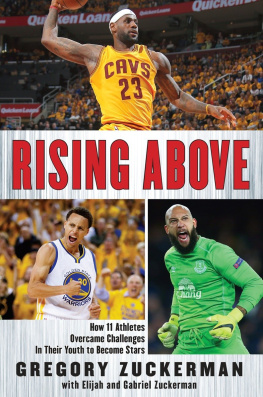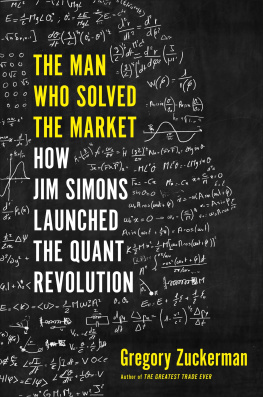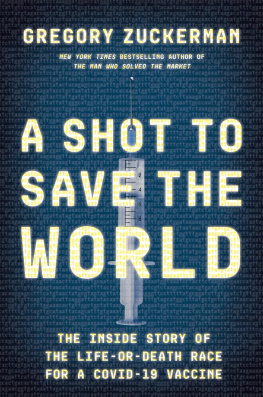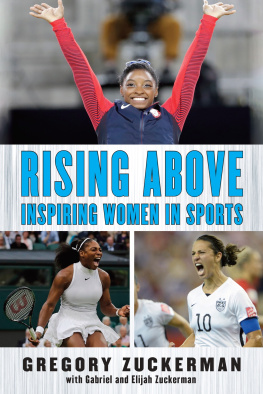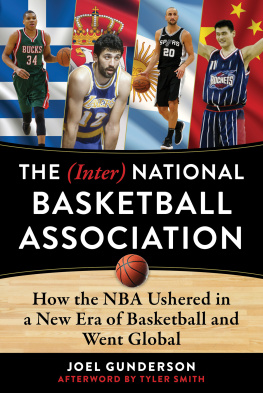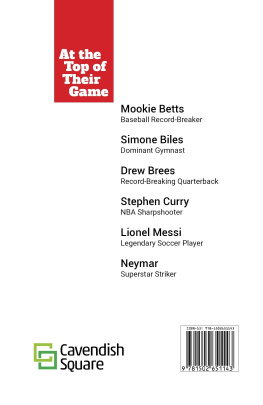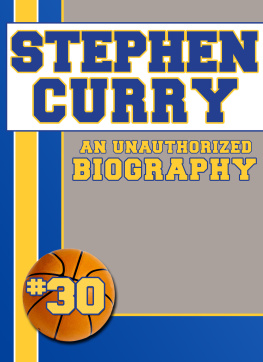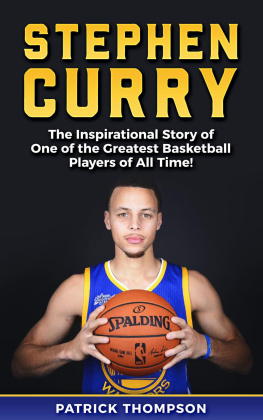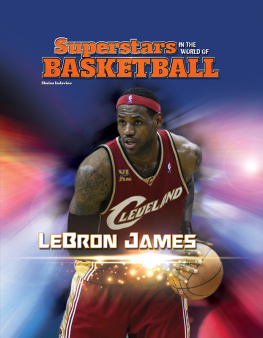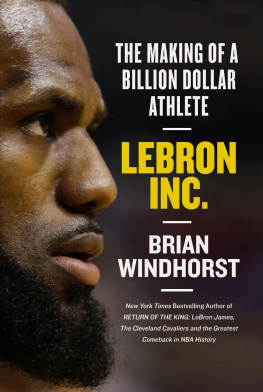Gregory Zuckerman - Rising Above: How 11 Athletes Overcame Challenges in Their Youth to Become Stars
Here you can read online Gregory Zuckerman - Rising Above: How 11 Athletes Overcame Challenges in Their Youth to Become Stars full text of the book (entire story) in english for free. Download pdf and epub, get meaning, cover and reviews about this ebook. year: 2016, publisher: Penguin Young Readers Group, genre: Non-fiction. Description of the work, (preface) as well as reviews are available. Best literature library LitArk.com created for fans of good reading and offers a wide selection of genres:
Romance novel
Science fiction
Adventure
Detective
Science
History
Home and family
Prose
Art
Politics
Computer
Non-fiction
Religion
Business
Children
Humor
Choose a favorite category and find really read worthwhile books. Enjoy immersion in the world of imagination, feel the emotions of the characters or learn something new for yourself, make an fascinating discovery.
- Book:Rising Above: How 11 Athletes Overcame Challenges in Their Youth to Become Stars
- Author:
- Publisher:Penguin Young Readers Group
- Genre:
- Year:2016
- Rating:3 / 5
- Favourites:Add to favourites
- Your mark:
Rising Above: How 11 Athletes Overcame Challenges in Their Youth to Become Stars: summary, description and annotation
We offer to read an annotation, description, summary or preface (depends on what the author of the book "Rising Above: How 11 Athletes Overcame Challenges in Their Youth to Become Stars" wrote himself). If you haven't found the necessary information about the book — write in the comments, we will try to find it.
Team USA goalkeeper Tim Howard was diagnosed with Tourette Syndrome in 6th grade. He went on to become a national treasure after single-handedly keeping America competitive in the 2014 World Cup. Stephen Curry was told he was too small, too weak, and too slow to even receive a scholarship to play college basketball. He outworked everyone and went on to become MVP of the National Basketball Association. Jim Abbott was born without his right hand, yet he refused to be defined by what he lacked. He went on to pitch a no-hitter in the Major Leagues.
Athlete after athlete in this book found discipline, hope, and inspiration on the playing field, rising above their circumstances. Filled with first-hand accounts from stars who exemplify the idea of enduring at all costs, this collection of sports biographies will serve as a must-read source of inspiration for kids and sports fans of all ages.
Praise for Rising Above
A Scholastic Teacher magazine Summer Reading List selection
A Milwaukee Journal Sentinel Summer Reading List selection
An easy pitch for middle school sports lovers.School Library Journal
This collection of mini-bios about athletes who overcame major obstacles packs a powerful messageperseverance and passion pay off. Even non-sports fans will cheer for superstars like LeBron James and Stephen Curry.Scholastic Teacher
So many of the obstacles that these athletes share are retold using personal interviews and primary source material that young readers will find very relatable. [T]heir stories have morals that are easily transferred to life off the court or the field. The highly relevant message is that no situation is too dire or insurmountable with the right attitude and that young people shouldnt allow setbacks to define them.Booklist
[O]ften inspiring . . . The underdog stories reveal that dedication and perseverance pay off, as well as that sports can serve as needed outlets and refuges.Publishers Weekly
I would rate this a 9 1/2 . . . it touch[es] your heart very often with the ways these athletes turn[ed] their lives around.Colorado Kids
Gregory Zuckerman: author's other books
Who wrote Rising Above: How 11 Athletes Overcame Challenges in Their Youth to Become Stars? Find out the surname, the name of the author of the book and a list of all author's works by series.

